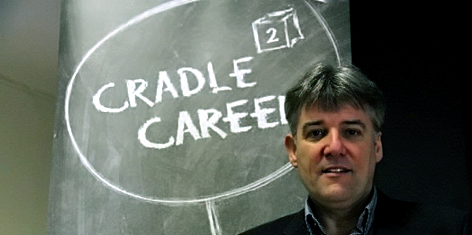
You have finally completed your studies and are ready to step into the world of work – and of course, earning big money. But what people forgot to tell you is how competitive it is out there. Hundreds of graduates are competing for a small number of jobs.
So, make sure you stand out from the pack!
Join Prof Jonathan Jansen for a discussion on Reducing Joblessness on Tuesday 25 February 2014, giving tips on how to secure a job for yourself. Students are also welcome to suggest solutions to joblessness after graduation.
Mark Mead, a motivational speaker and entrepreneur, will join Prof Jansen at this informative event. He will speak about opportunities available to graduates in South Africa, how to make a difference and prove your mettle. Mead is the founder of Cradle2Career, a commodity trader, the director of Tire World Exports, as well as a consultant for Africa to corporates.
The discussions are part of an exciting line-up planned by the UFS Career Development Office. These workshops are designed to assist students in bolstering their employability skills for today’s world of work.
Date: 25 February 2014
Time: 08:00–09:00: Reducing Joblessness by Prof Jonathan Jansen
09:00–10:00: Discussion by Mark Mead
Venue: EBW Auditorium (at Business School opposite the Wynand Mouton Theatre)